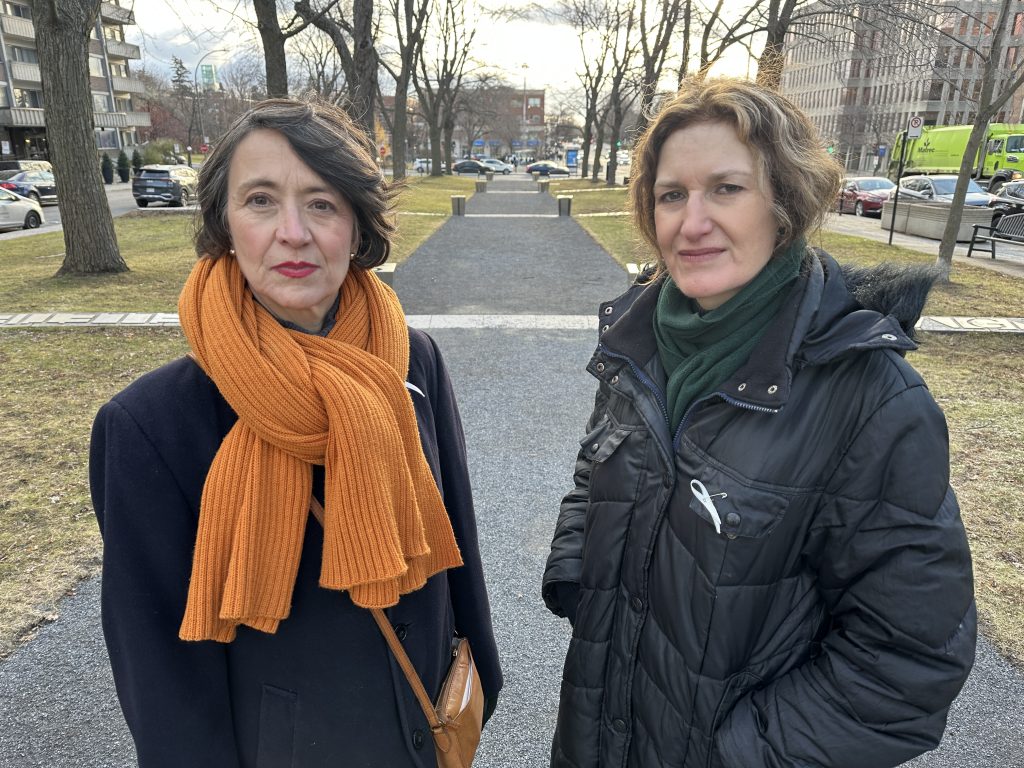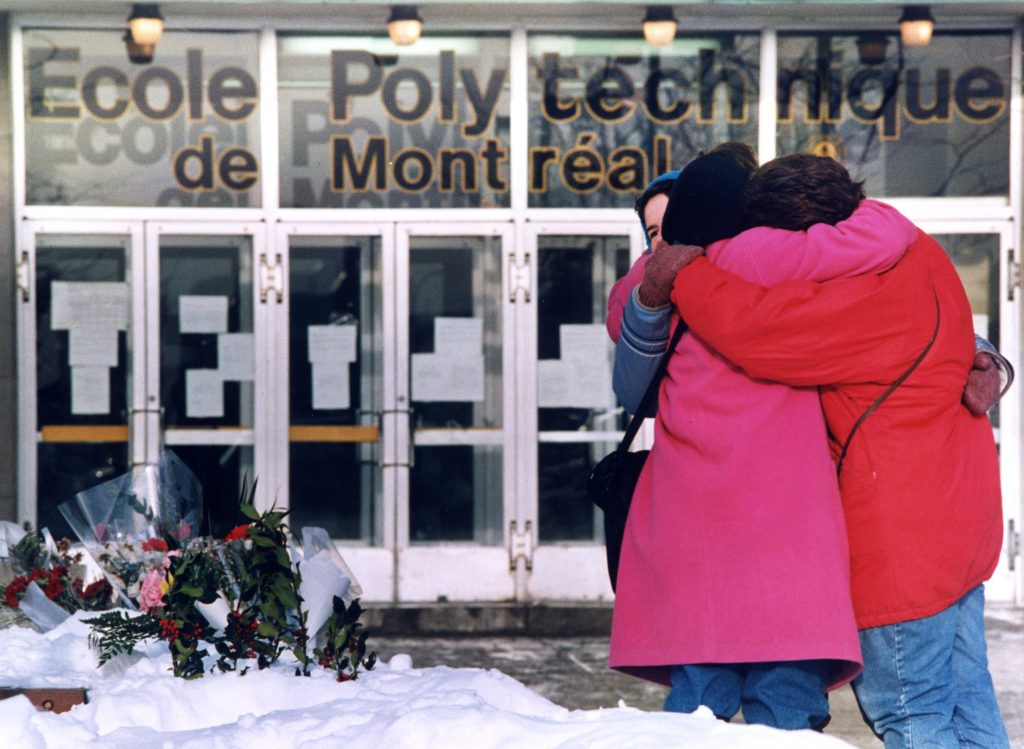‘Like yesterday’: Survivors remember 1989 Polytechnique massacre that spurred them into advocacy for gun control

Posted December 5, 2024 9:54 am.
Last Updated December 5, 2024 10:01 am.
On the eve of the 35th anniversary of the Polytechnique massacre in Montreal — an anti-feminist attack from a gunman that killed 14 women because they were women — survivor Nathalie Provost says she’s especially feeling the emotions this year.
“It’s like yesterday, sometimes, and sometimes it’s like it happened to someone else,” she said, speaking of how she remembers the attack.
Provost says she believes she was there when it all started, when a gunman walked into her class on that fateful day of Dec. 6, 1989.
“He shot at the wall and he split the class, he asked the men to go to the left and the women to go to the right,” she recalled. “It was not quick enough for him. He shot again. He told us he was there because we were feminists.”

Provost says she remembers what she told the gunman.
“I answered that we were not feminists, that we were just students, and that he can come study with us,” she said. “That was my opinion at the time, but I know that I am a feminist, and I was then.”
She and the other women in the class were shot.
“He left the classroom while we were all on the floor, six of my classmates died.”
The 14 women killed were: Anne-Marie Lemay, Anne-Marie Edward, Annie St-Arneault, Annie Turcotte, Maryse Laganière, Maryse Leclair, Maud Haviernick, Barbara Daigneault, Barbara Klucznik, Geneviève Bergeron, Hélène Colgan, Michèle Richard, Nathalie Croteau, and Sonia Pelletier.
Heidi Rathjen was also a student at the time.
“I was nearby, I was in a student union room so I was spared from seeing anything, I heard a lot, but somehow your brain protects you,” she said.
Both Provost and Rathjen say they have an unbreakable link to one another — friends before Dec. 6 brought them together in advocacy.
“On Dec. 7, Heidi was interviewed, and that interview was broadcasted everywhere in Quebec and probably in Canada,” Provost said.
“That’s one of the main reasons I met with the press the day after because I had to speak to my colleagues from Polytechnique, to remind every woman to come back to school, but Heidi brought me to do that.”
From the days following the massacre to today, the women have been speaking out against gun violence and lobbying for gun control with their advocacy group, PolySeSouvient.
“Our remembering is linked to action, to concrete action, to change things for the better,” Rathjen said.
“It gives me a purpose to do something and to share my memory,” Provost said. “We want to erase the possibility for another femicide like we had to go through 35 years ago.”









